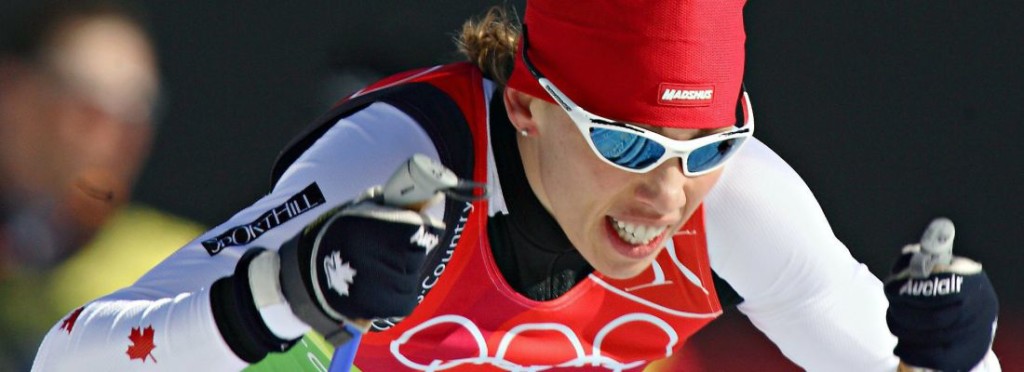Beckie Scott fighting hard to clean up sports
Beckie Scott no longer travels the globe in pursuit of medals, spending her time instead skiing leisurely around the Canmore Nordic Centre located west of Calgary with her family.
But behind the scenes, the 2002 Olympic cross-country champion is battling as hard as ever for the sanctity of sport.
Scott, 41, is the chairperson of the World Anti Doping Agency athlete committee and a member of the review committee that declared Russia non-compliant. The historical November pronouncement led to the immediate decertification of the Moscow doping control laboratory that processed blood and urine samples from Russian athletes.
Speaking on behalf of athletes around the world, Scott asked the 38-person WADA Foundation Board in Colorado Springs to expand the independent commission’s investigation to all sports in Russia, not just track and field. Her request generated a standing ovation, but nothing in the way action — or headlines back home.
“It’s really gutting to know that amount of cheating has been going on for so long, and it’s still going on,” Scott says, “Quite honestly the reaction from some of the sport organizations has been pretty disappointing. There hasn’t been enough people standing up saying ‘This is an abomination. It has to stop.’”
Scott has been singing off the same choir sheet for more than 15 years. At the 2002 Salt Lake City Olympics, she finished third behind two Russian skiers, Olga Danilova and runner-up Larissa Lazutina.
“I can stand on the podium and wear my medal with pride knowing I did this on my own,” she said at the time. “I’m burning natural gas in my engine.”
As it turned out, Danilova and Lazutina were not burning natural gas. The two Russians failed drug tests, which resulted in a gold-medal ceremony for Scott more than two years after the fact in Vancouver.
“It’s frustrating,” Scott says. “I really felt back in 2002 that this was a watershed moment for sport. The scandal in Salt Lake City was really going to change things. Now, looking back, nothing has changed. If anything it’s just got more sophisticated.”
Undeterred, Scott vows to keep battling on behalf of clean competitors who are the real victims of cheaters.
“I still believe in fair, clean sport,” she says. “I still believe it’s an important cornerstone of the Olympic movement and for athletes world wide. Of course I’m positive. I couldn’t be involved if I wasn’t.”
Gilmore’s turn
Speed skater Gilmore Junio had a tough time sleeping the night before Sunday’s World Cup race in Stavanger, Norway. With a world championship berth on the line, he fuelled up on Cocoa Puffs, eggs and fried potatoes and reported to the rink for what amounted to a race-off against fellow Canadian Laurent Dubreuil.
Junio, of Calgary, crossed the line in 34.86 seconds to win 500-metre bronze and, more importantly, secure the third and final Canadian quota spot at the single distance world championships Feb. 11 to 14 in Kolmona, Russia.
True to the “nice guy” reputation he developed after giving up his spot in the 1,000-metre race at the Sochi Olympics, Junio’s thoughts turned to Dubreuil.
“It’s definitely bittersweet when you cross the finish line in a scenario like this,” he said. “You know your teammate isn’t coming with you to the world championships. So crossing the line, I definitely felt for Laurent.”
Dubreuil, from Levis, Que., was ranked second overall in the 2014/15 World Cup standings. William Dutton, of Humboldt, Sask., and Alex Boisvert-Lacroix, of Sherbrooke, Que., had already pre-qualified in Canada’s deepest discipline.
Mountain Mission
Heather Moyse conquered many mountains and made it look easy as a two-time Olympic bobsleigh champion for Canada.
The 37-year-old felt more like a mere mortal last month in summitting the highest peak in Antarctica to raise awareness for post-traumatic stress disorder and funds to help transition veterans back into civilian life.
“It’s so outside of my wheelhouse,” she said upon arriving safely in Toronto. “I’m totally an anaerobic athlete. I trained for the last number of years to go down a mountain as fast as possible. This whole trek was about going up a mountain probably as slowly as possible.”
Heading up the mountain slowly to conserve energy and prevent sweat in frigid temperatures, Moyse and her group of veterans and business people trudged for 21 days to the top of Mount Vinson.
After climbing 4,892 metres, Moyse ranked the experience as one of the toughest physical challenges of her life — which is saying something given the three-time Olympian in bobsleigh also represented Canada on the international stage in cycling and rugby.
Undecided about her future, Moyse is not ruling out one last Olympic tour of duty in bobsleigh at the 2018 Winter Games in Pyeongchang, South Korea.
Athlete to Watch
Nathan Smith, biathlon: Competing at Canada’s first biathlon World Cup in more than two decades, Smith is the host nation’s best hope at a medal starting Thursday at the Canmore Nordic Centre. The 2015 world championship silver medallist knows the winds on the Rocky Mountain range better than anybody. The question remains whether the 29-year-old motorcycle enthusiast can make the most of home-course advantage.
Article Written By: Vicki Hall
0

